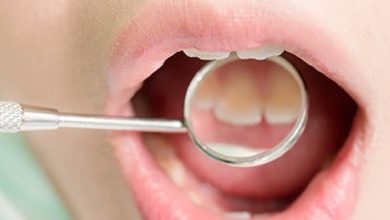Does Carbonated Water Cause Tooth Decay? The Truth Unveiled

Carbonated water can contribute to tooth decay due to its high acidity levels and erosive effects. Regular consumption of carbonated water can weaken tooth enamel, potentially leading to cavities and dental problems in the long run.
Carbonated water is a popular beverage known for its refreshing and bubbly nature. Many people enjoy it as a healthier alternative to sugary sodas and other carbonated drinks. However, it is essential to be aware that regular consumption of carbonated water can have a detrimental impact on oral health.
One of the primary concerns associated with carbonated water is its high acidity levels. The carbonation process involves the addition of carbon dioxide gas, which converts into carbonic acid in the mouth. This increased acidity can erode tooth enamel over time, making it more susceptible to tooth decay and cavities. Tooth enamel is the protective outer layer of the teeth that helps prevent damage from bacteria and acid attacks. When the enamel weakens, the underlying dentin layer becomes exposed, leading to increased tooth sensitivity and potential dental issues. While carbonated water alone may not be as damaging to teeth as sugary beverages, it is necessary to consider the overall impact of acidity on oral health. It is recommended to consume carbonated water in moderation and practice good oral hygiene habits such as regular brushing, flossing, and dental check-ups to maintain optimal dental health.
Understanding The Basics
htmlCarbonated water, also known as sparkling water or fizzy water, has gained popularity as a refreshing alternative to sugary beverages. However, many people wonder if it can contribute to tooth decay. To understand this, it’s important to know the science behind tooth decay and the impact of pH levels on dental health.
Tooth decay occurs when the enamel, the protective outer layer of the teeth, is eroded by acid-producing bacteria. These bacteria feed on sugars from the foods and beverages we consume, producing acids as byproducts. The acids weaken the enamel, leading to cavities and tooth decay.
pH levels play a crucial role in dental health. The pH scale ranges from 0 to 14, with 7 being neutral. Anything below 7 is considered acidic, while anything above 7 is alkaline. Carbonated water is mildly acidic, typically ranging from a pH of 3 to 4. While this acidity is lower compared to sugary sodas, it can still potentially weaken the tooth enamel, especially if consumed in large quantities or over a prolonged period.
It’s important to note that carbonated water alone is unlikely to cause significant tooth decay. However, if it is consumed in combination with other acidic beverages or foods, or as a substitute for regular water and proper oral care, it may contribute to dental issues. Maintaining good oral hygiene practices, such as regular brushing and flossing, and limiting the intake of acidic drinks and snacks, can help minimize the risk of tooth decay.
Myth Or Fact: Does Carbonated Water Cause Tooth Decay?
Carbonated water, also known as sparkling water, is often a popular choice for those looking for a refreshing and fizzy alternative to plain water. However, there have been claims that it can contribute to tooth decay. Let’s examine the facts and debunk any misconceptions about carbonated water and its potential effects on our dental health.
| Claim | Reality |
|---|---|
| Carbonation causes acidity | True: Carbonated water contains carbonic acid, which can lower the pH level, making it slightly acidic. However, the acidity is much lower compared to sugary carbonated drinks like soda. |
| Acidity erodes tooth enamel | Partially true: Acidic drinks, including carbonated water, can contribute to enamel erosion over time. However, the impact is significantly lower compared to highly acidic beverages. |
| Carbonated water contains sugar | False: Pure carbonated water does not contain any sugar or artificial sweeteners unless specifically added. |
| Carbonated water leads to cavities | Unlikely: Cavities are primarily caused by prolonged exposure to sugary and acidic substances. If carbonated water is consumed in moderation and alongside a good oral hygiene routine, the risk of cavities is minimal. |
In conclusion, carbonated water by itself is unlikely to cause tooth decay. The slight acidity present in carbonated water is minimal compared to sugary carbonated drinks. As with any beverage, it is important to consume carbonated water in moderation and maintain good dental hygiene practices to ensure optimal oral health.
Factors Influencing Tooth Health
Factors Influencing Tooth Health
The role of sugar and acids in tooth decay:
Consuming sugary foods and beverages can lead to tooth decay. Bacteria in the mouth feed on sugars and produce acids that erode tooth enamel. The more sugars and acids present in the mouth, the higher the risk of tooth decay. Acidic foods and drinks such as citrus fruits, soda, and carbonated water can further contribute to enamel erosion.
Impact of carbonation on oral health:
Carbonated beverages, including carbonated water, can have a negative impact on tooth health. The carbonation process involves adding carbon dioxide, which creates carbonic acid in the mouth. This acid can weaken tooth enamel over time, making teeth more susceptible to decay. However, studies have shown that carbonation alone may not be the primary factor causing tooth decay. The acidity level and sugar content of the beverage are equally important.
Exploring the effects of carbonated beverages on teeth:
Research suggests that frequent consumption of sugary carbonated beverages can lead to tooth decay. It is recommended to limit the intake of such drinks and opt for healthier alternatives. Drinking carbonated water in moderation and practicing good oral hygiene, including regular brushing and flossing, can help maintain optimal tooth health.
Can Carbonated Water Be Tooth-friendly?
Carbonated water is often a popular choice for those looking for a refreshing beverage without the high sugar content found in many sodas and other carbonated drinks. However, concerns have been raised about the potential negative effects of carbonated water on dental health, specifically tooth decay.
Experts suggest that while carbonated water is generally considered to be less harmful to teeth compared to sugary carbonated beverages, it is still important to take certain precautions. One practical tip is to opt for carbonated water without added sugars or acids, as these can contribute to tooth decay. It is also recommended to drink carbonated water in moderation and alongside meals, rather than sipping it throughout the day. Additionally, maintaining a regular oral hygiene routine, which includes brushing twice a day and flossing, can help minimize the risk of tooth decay.
If you enjoy the fizzy sensation but want to avoid the potential risks to your teeth, there are also alternatives to sugary carbonated beverages that you can explore. This may include flavored water, herbal teas, or infused water, which can provide a refreshing and tooth-friendly option.
How To Safeguard Your Teeth From Erosion
• Importance of proper oral hygiene:
Maintaining good oral hygiene is crucial for protecting your teeth from decay. Brushing and flossing regularly remove plaque and bacteria that can erode tooth enamel.
• Dental care habits to protect teeth from decay:
In addition to regular brushing and flossing, limiting sugary foods and drinks can help minimize the risk of tooth decay. This includes reducing the consumption of carbonated water with added sugars.
• Recommendations from dental professionals for optimal oral health:
Dentists suggest drinking carbonated water without added sugars and using a fluoride-based toothpaste. Regular dental check-ups are also essential to detect and address any potential dental issues early on.

Credit: www.elevate.in
Frequently Asked Questions On Does Carbonated Water Cause Tooth Decay?
Does Drinking Carbonated Water Damage Teeth?
Drinking carbonated water can potentially harm teeth due to its acidic nature, which can erode tooth enamel.
Does Carbonated Water Dissolve Tooth Enamel?
Yes, carbonated water can dissolve tooth enamel due to its acidic nature, which can lead to tooth decay.
How Do I Protect My Teeth From Sparkling Water?
To protect your teeth from sparkling water, limit your consumption and opt for fluoridated water. Also, avoid sipping or holding the drink in your mouth and rinse with water afterwards. Maintain a proper oral hygiene routine, including brushing twice a day and regular dental check-ups.
What Drinks Cause The Most Tooth Decay?
Frequent consumption of sugary drinks like sodas and fruit juices can cause the most tooth decay. These drinks contain high amounts of sugar that feed harmful bacteria in the mouth, leading to the formation of acids that erode tooth enamel.
It’s important to limit intake and practice good oral hygiene to protect your teeth.
Conclusion
While carbonated water may not directly cause tooth decay, it is important to consider its potential effects on dental health. The acidity of carbonated drinks can erode tooth enamel over time, leading to increased vulnerability to decay. However, practicing good oral hygiene, such as regular brushing and flossing, can help minimize the risks.
It is always advisable to consult with a dentist for personalized advice regarding your dental health.





